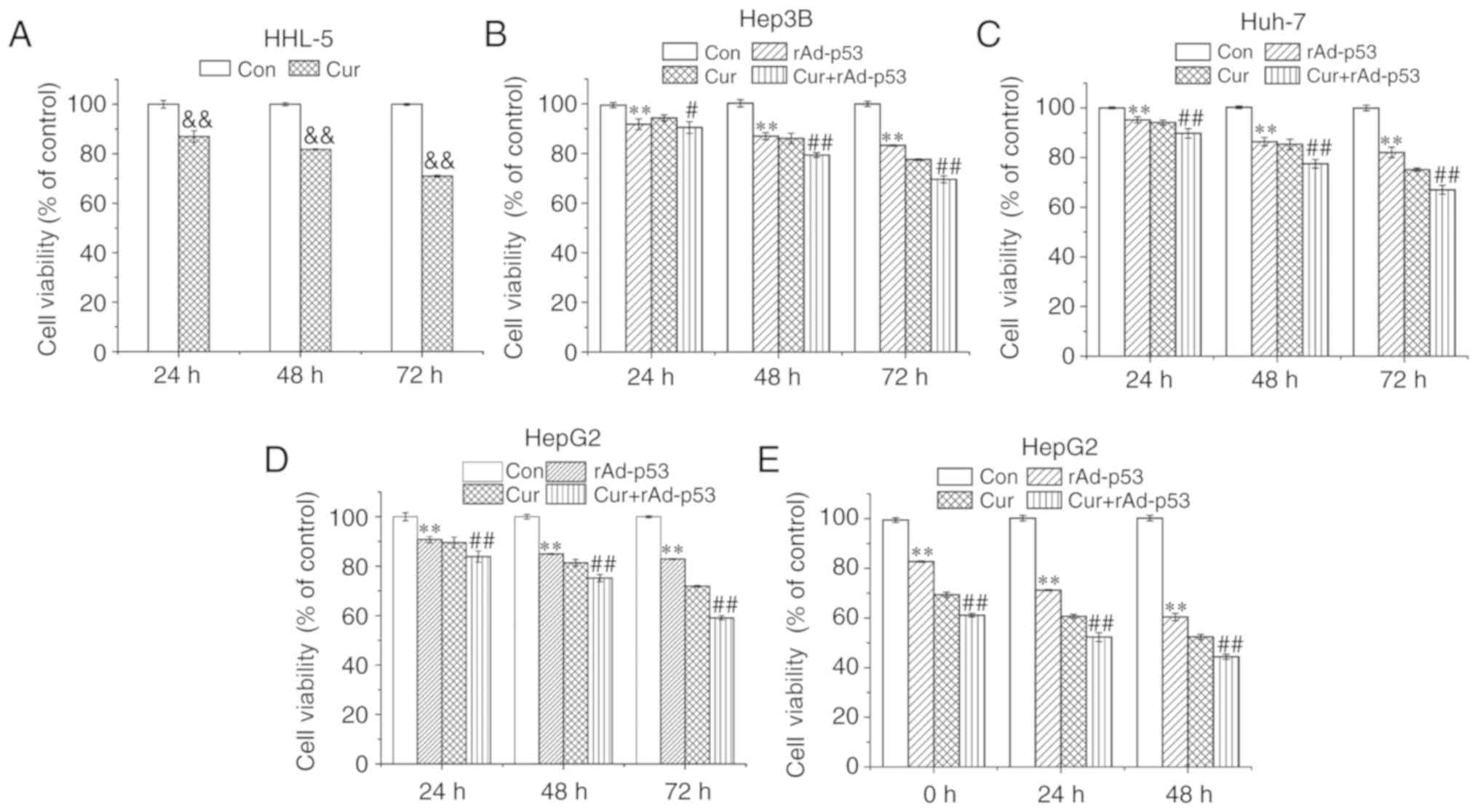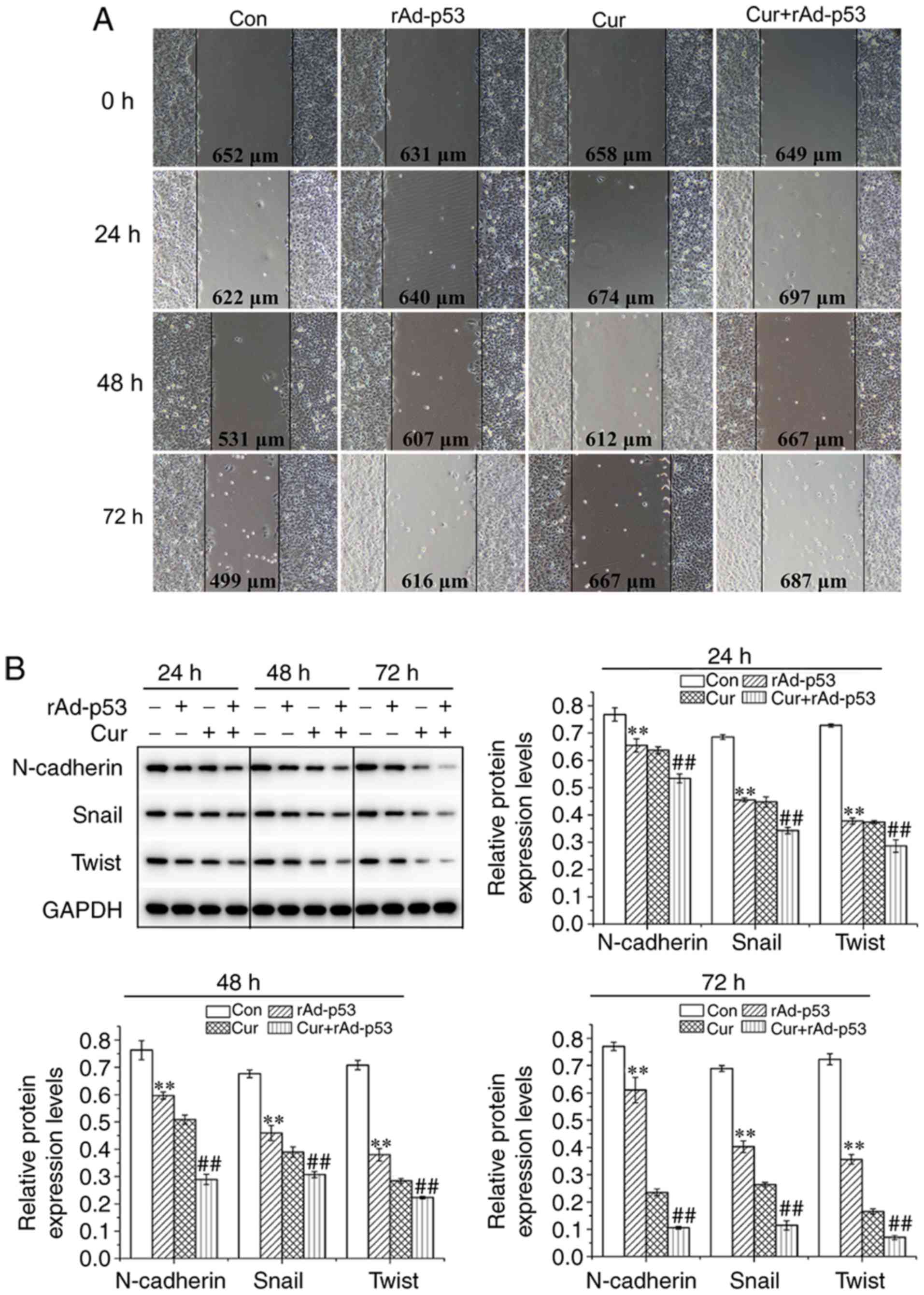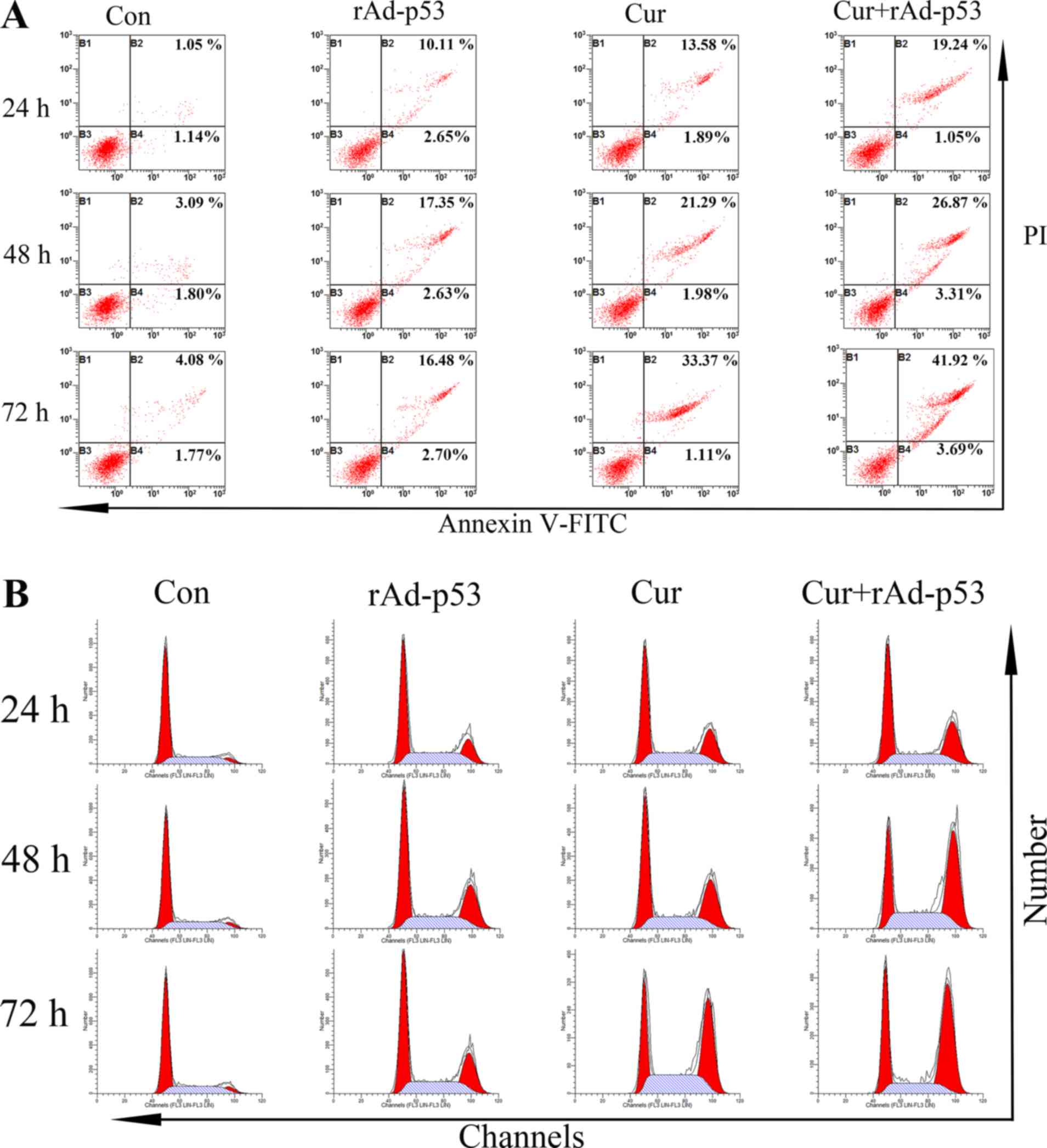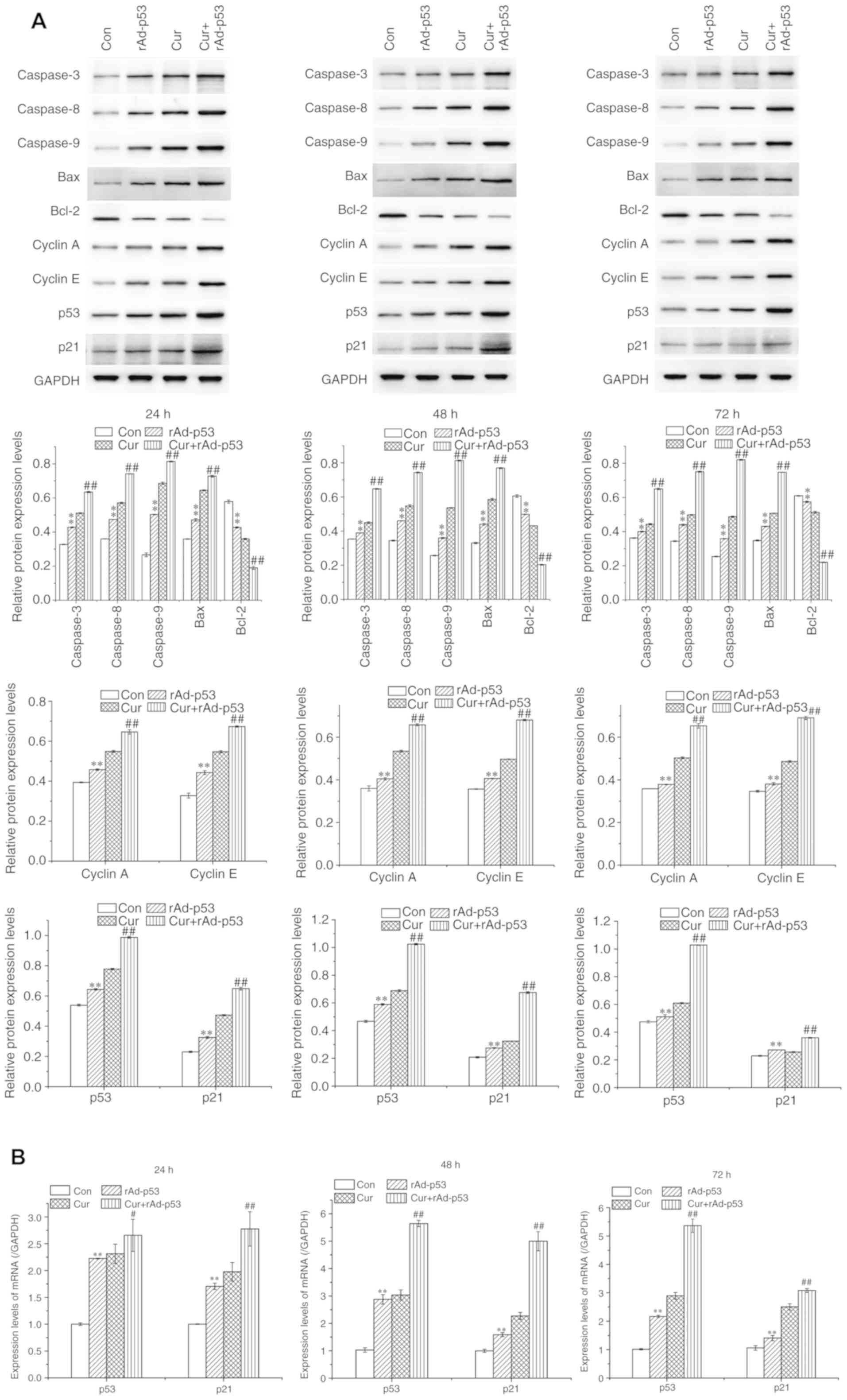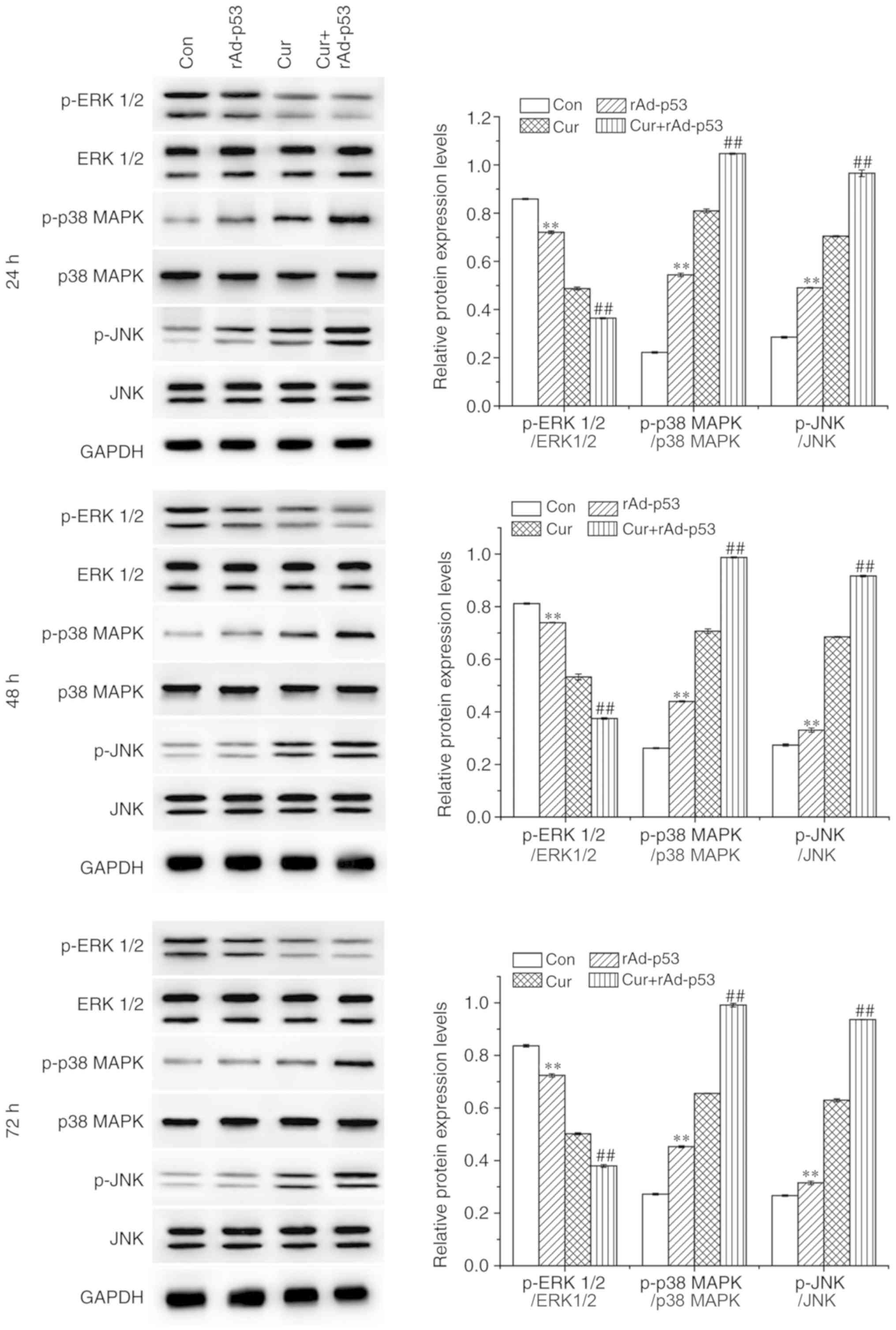|
1
|
Yu LX and Schwabe RF: The gut microbiome
and liver cancer: Mechanisms and clinical translation. Nat Rev
Gastroenterol Hepatol. 14:527–539. 2017.PubMed/NCBI View Article : Google Scholar
|
|
2
|
Jiang JF, Lao YC, Yuan BH, Yin J, Liu X,
Chen L and Zhong JH: Treatment of hepatocellular carcinoma with
portal vein tumor thrombus: Advances and challenges. Oncotarget.
8:33911–33921. 2017.PubMed/NCBI View Article : Google Scholar
|
|
3
|
Bruix J, Han KH, Gores G, Llovet JM and
Mazzaferro V: Liver cancer: Approaching a personalized care. J
Hepatol. 62:S144–S156. 2015.PubMed/NCBI View Article : Google Scholar
|
|
4
|
Poulain S, Roumier C, Bertrand E,
Renneville A, Caillault-Venet A, Doye E, Geffroy S, Sebda S,
Nibourel O, Nudel M, et al: TP53 mutation and its prognostic
significance in Waldenstrom's macroglobulinemia. Clin Cancer Res.
23:6325–6335. 2017.PubMed/NCBI View Article : Google Scholar
|
|
5
|
Friemel J, Rechsteiner M, Bawohl M, Frick
L, Müllhaupt B, Lesurtel M and Weber A: Liver cancer with
concomitant TP53 and CTNNB1 mutations: A case report. BMC Clin
Pathol. 16(7)2016.PubMed/NCBI View Article : Google Scholar
|
|
6
|
Vogelstein B, Lane D and Levine AJ:
Surfing the p53 network. Nature. 408:307–310. 2000.PubMed/NCBI View
Article : Google Scholar
|
|
7
|
McCubrey JA, Lertpiriyapong K, Fitzgerald
TL, Martelli AM, Cocco L, Rakus D, Gizak A, Libra M, Cervello M,
Montalto G, et al: Roles of TP53 in determining therapeutic
sensitivity, growth, cellular senescence, invasion and metastasis.
Adv Biol Regul. 63:32–48. 2017.PubMed/NCBI View Article : Google Scholar
|
|
8
|
Soussi T and Wiman KG: TP53: An oncogene
in disguise. Cell Death Differ. 22:1239–1249. 2015.PubMed/NCBI View Article : Google Scholar
|
|
9
|
Kashofer K and Regauer S: Analysis of full
coding sequence of the TP53 gene in invasive vulvar cancers:
Implications for therapy. Gynecol Oncol. 146:314–318.
2017.PubMed/NCBI View Article : Google Scholar
|
|
10
|
Li J, Pan J, Zhu X, Su Y, Bao L, Qiu S,
Zou C, Cai Y, Wu J and Tham IW: Recombinant adenovirus-p53
(Gendicine) sensitizes a pancreatic carcinoma cell line to
radiation. Chin J Cancer Res. 25:715–721. 2013.PubMed/NCBI View Article : Google Scholar
|
|
11
|
Räty JK, Pikkarainen JT, Wirth T and
Ylä-Herttuala S: Gene therapy: The first approved gene-based
medicines, molecular mechanisms and clinical indications. Curr Mol
Pharmacol. 1:13–23. 2008.PubMed/NCBI View Article : Google Scholar
|
|
12
|
Li Y, Li B, Li CJ and Li LJ: Key points of
basic theories and clinical practice in rAd-p53 (Gendicine ™) gene
therapy for solid malignant tumors. Expert Opin Biol Ther.
15:437–454. 2015.PubMed/NCBI View Article : Google Scholar
|
|
13
|
Chen GX, Zheng LH, Liu SY and He XH:
rAd-p53 enhances the sensitivity of human gastric cancer cells to
chemotherapy. World J Gastroenterol. 17:4289–4297. 2011.PubMed/NCBI View Article : Google Scholar
|
|
14
|
Shen A, Liu S, Yu W, Deng H and Li Q: p53
gene therapy-based transarterial chemoembolization for unresectable
hepatocellular carcinoma: A prospective cohort study. J
Gastroenterol Hepatol. 30:1651–1656. 2015.PubMed/NCBI View Article : Google Scholar
|
|
15
|
Li Y, Li LJ, Wang LJ, Zhang Z, Gao N,
Liang CY, Huang YD and Han B: Selective intra-arterial infusion of
rAd-p53 with chemotherapy for advanced oral cancer: A randomized
clinical trial. BMC Med. 12(16)2014.PubMed/NCBI View Article : Google Scholar
|
|
16
|
Guan YS, Liu Y, Zou Q, He Q, La Z, Yang L
and Hu Y: Adenovirus-mediated wild-type p53 gene transfer in
combination with bronchial arterial infusion for treatment of
advanced non-small-cell lung cancer, one year follow-up. J Zhejiang
Univ Sci B. 10:331–340. 2009.PubMed/NCBI View Article : Google Scholar
|
|
17
|
Buller RE, Runnebaum IB, Karlan BY,
Horowitz JA, Shahin M, Buekers T, Petrauskas S, Kreienberg R,
Slamon D and Pegram M: A phase I/II trial of rAd/p53 (SCH 58500)
gene replacement in recurrent ovarian cancer. Cancer Gene Ther.
9:553–566. 2002.PubMed/NCBI View Article : Google Scholar
|
|
18
|
Staib F, Hussain SP, Hofseth LJ, Wang XW
and Harris CC: TP53 and liver carcinogenesis. Hum Mutat.
21:201–216. 2003.PubMed/NCBI View Article : Google Scholar
|
|
19
|
Chin KY: The spice for joint inflammation:
Anti-inflammatory role of curcumin in treating osteoarthritis. Drug
Des Devel Ther. 10:3029–3042. 2016.PubMed/NCBI View Article : Google Scholar
|
|
20
|
Lestari ML and Indrayanto G: Curcumin.
Profiles Drug Subst Excip Relat Methodol. 39:113–204.
2014.PubMed/NCBI View Article : Google Scholar
|
|
21
|
Darvesh AS, Aggarwal BB and Bishayee A:
Curcumin and liver cancer: A review. Curr Pharm Biotechnol.
13:218–228. 2012.PubMed/NCBI View Article : Google Scholar
|
|
22
|
El-Houseini ME, El-Agoza IA, Sakr MM and
El-Malky GM: Novel protective role of curcumin and taurine
combination against experimental hepatocarcinogenesis. Exp Ther
Med. 13:29–36. 2017.PubMed/NCBI View Article : Google Scholar
|
|
23
|
Marquardt JU, Gomez-Quiroz L, Arreguin
Camacho LO, Pinna F, Lee YH, Kitade M, Domínguez MP, Castven D,
Breuhahn K, Conner EA, et al: Curcumin effectively inhibits
oncogenic NF-κB signaling and restrains stemness features in liver
cancer. J Hepatol. 63:661–669. 2015.PubMed/NCBI View Article : Google Scholar
|
|
24
|
Livak KJ and Schmittgen TD: Analysis of
relative gene expression data using real-time quantitative PCR and
the 2(-ΔΔC(T)) method. Methods. 25:402–408. 2001.PubMed/NCBI View Article : Google Scholar
|
|
25
|
Hsia CC, Nakashima Y, Thorgeirsson SS,
Harris CC, Minemura M, Momosaki S, Wang NJ and Tabor E: Correlation
of immunohistochemical staining and mutations of p53 in human
hepatocellular carcinoma. Oncol Rep. 7:353–356. 2000.PubMed/NCBI
|
|
26
|
Honda K, Sbisà E, Tullo A, Papeo PA,
Saccone C, Poole S, Pignatelli M, Mitry RR, Ding S, Isla A, et al:
p53 mutation is a poor prognostic indicator for survival in
patients with hepatocellular carcinoma undergoing surgical tumour
ablation. Br J Cancer. 77:776–782. 1998.PubMed/NCBI View Article : Google Scholar
|
|
27
|
Wu W, Liu S, Liang Y, Zhou Z, Bian W and
Liu X: Stress hormone cortisol enhances Bcl2 like-12 expression to
inhibit p53 in hepatocellular carcinoma cells. Dig Dis Sci.
62:3495–3500. 2017.PubMed/NCBI View Article : Google Scholar
|
|
28
|
Li VD, Li KH and Li JT: TP53 mutations as
potential prognostic markers for specific cancers: Analysis of data
from The Cancer Genome Atlas and the International Agency for
Research on Cancer TP53 Database. J Cancer Res Clin Oncol.
145:625–636. 2019.PubMed/NCBI View Article : Google Scholar
|
|
29
|
Tu K, Zheng X, Zhou Z, Li C, Zhang J, Gao
J, Yao Y and Liu Q: Recombinant human adenovirus-p53 injection
induced apoptosis in hepatocellular carcinoma cell lines mediated
by p53-Fbxw7 pathway, which controls c-Myc and cyclin E. PLoS One.
8(e68574)2013.PubMed/NCBI View Article : Google Scholar
|
|
30
|
Chen SX, Xu WD, Yin GW, Xi W, Chen J, Xu
QY and Ma GJ: Clinical therapeutic effect and biological monitoring
of p53 gene in advanced hepatocellular carcinoma. Zhonghua Yi Xue
Za Zhi. 90:2182–2186. 2010.PubMed/NCBI(In Chinese).
|
|
31
|
Tian G, Liu J, Zhou JS and Chen W:
Multiple hepatic arterial injections of recombinant adenovirus p53
and 5-fluorouracil after transcatheter arterial chemoembolization
for unresectable hepatocellular carcinoma: A pilot phase II trial.
Anticancer Drugs. 20:389–395. 2009.PubMed/NCBI View Article : Google Scholar
|
|
32
|
Guan YS, Liu Y, He Q, Li X, Yang L, Hu Y
and La Z: p53 gene therapy in combination with transcatheter
arterial chemoembolization for HCC: One-year follow-up. World J
Gastroenterol. 17:2143–2149. 2011.PubMed/NCBI View Article : Google Scholar
|
|
33
|
Yang ZX, Wang D, Wang G, Zhang QH, Liu JM,
Peng P and Liu XH: Clinical study of recombinant adenovirus-p53
combined with fractionated stereotactic radiotherapy for
hepatocellular carcinoma. J Cancer Res Clin Oncol. 136:625–630.
2010.PubMed/NCBI View Article : Google Scholar
|
|
34
|
Cao W, Zhang JL, Feng DY, Liu XW, Li Y,
Wang LF, Yao LB, Zhang H and Zhang J: The effect of
adenovirus-conjugated NDRG2 on p53-mediated apoptosis of
hepatocarcinoma cells through attenuation of nucleotide excision
repair capacity. Biomaterials. 35:993–1003. 2014.PubMed/NCBI View Article : Google Scholar
|
|
35
|
Sasaki R, Shirakawa T, Zhang ZJ, Tamekane
A, Matsumoto A, Sugimura K, Matsuo M, Kamidono S and Gotoh A:
Additional gene therapy with Ad5CMV-p53 enhanced the efficacy of
radiotherapy in human prostate cancer cells. Int J Radiat Oncol
Biol Phys. 51:1336–1345. 2001.PubMed/NCBI View Article : Google Scholar
|
|
36
|
Shirakawa T, Gotoh A, Gardner TA, Kao C,
Zhang ZJ, Matsubara S, Wada Y, Hinata N, Fujisawa M, Hanioka K, et
al: p53 adenoviral vector (Ad-CMV-p53) induced prostatic growth
inhibition of primary cultures of human prostate and an
experimental rat model. J Gene Med. 2:426–432. 2000.PubMed/NCBI View Article : Google Scholar
|
|
37
|
Bai Z, Wang J, Wang T, Li Y, Zhao X, Wu G,
Yang Y, Deng W and Zhang Z: The miR-495/Annexin A3/P53 axis
inhibits the invasion and EMT of colorectal cancer cells. Cell
Physiol Biochem. 44:1882–1895. 2017.PubMed/NCBI View Article : Google Scholar
|
|
38
|
Angadi PV, Patil PV, Angadi V, Mane D,
Shekar S, Hallikerimath S, Kale AD and Kardesai SG:
Immunoexpression of epithelial mesenchymal transition proteins
E-Cadherin, β-Catenin, and N-Cadherin in oral squamous cell
carcinoma. Int J Surg Pathol. 24:696–703. 2016.PubMed/NCBI View Article : Google Scholar
|
|
39
|
Curiel DT, Gerritsen WR and Krul MR:
Progress in cancer gene therapy. Cancer Gene Ther. 7:1197–1199.
2000.PubMed/NCBI View Article : Google Scholar
|
|
40
|
Liu YG, Zheng XL and Liu FM: The mechanism
and inhibitory effect of recombinant human P53 adenovirus injection
combined with paclitaxel on human cervical cancer cell HeLa. Eur
Rev Med Pharmacol Sci. 19:1037–1042. 2015.PubMed/NCBI
|
|
41
|
Liao W, Liu J, Liu B, Huang X, Yin Y, Cai
D, Li M and Zhu R: JIB 04 induces cell apoptosis via activation of
the p53/Bcl 2/caspase pathway in MHCC97H and HepG2 cells. Oncol
Rep. 40:3812–3820. 2018.PubMed/NCBI View Article : Google Scholar
|
|
42
|
Cao Y, Cao J, Yu B, Wang S, Liu L, Tao L
and Sun W: Berbamine induces SMMC-7721 cell apoptosis via
upregulating p53, downregulating survivin expression and activating
mitochondria signaling pathway. Exp Ther Med. 15:1894–1901.
2018.PubMed/NCBI View Article : Google Scholar
|
|
43
|
Tamura M, Sasaki Y, Koyama R, Takeda K,
Idogawa M and Tokino T: Forkhead transcription factor FOXF1 is a
novel target gene of the p53 family and regulates cancer cell
migration and invasiveness. Oncogene. 33:4837–4846. 2014.PubMed/NCBI View Article : Google Scholar
|
|
44
|
Liu Y, Li L, Liu Y, Geng P, Li G, Yang Y
and Song H: RECK inhibits cervical cancer cell migration and
invasion by promoting p53 signaling pathway. J Cell Biochem.
119:3058–3066. 2018.PubMed/NCBI View Article : Google Scholar
|
|
45
|
Zhang B, Yin X and Sui S: Resveratrol
inhibited the progression of human hepatocellular carcinoma by
inducing autophagy via regulating p53 and the phosphoinositide 3
kinase/protein kinase B pathway. Oncol Rep. 40:2758–2765.
2018.PubMed/NCBI View Article : Google Scholar
|
|
46
|
Zheng L, Guan ZJ, Pan WT, Du TF, Zhai YJ
and Guo J: Tanshinone suppresses arecoline-induced
epithelial-mesenchymal transition in oral submucous fibrosis by
epigenetically reactivating the p53 pathway. Oncol Res. 26:483–494.
2018.PubMed/NCBI View Article : Google Scholar
|
|
47
|
Sidhar H and Giri RK: Induction of Bex
genes by curcumin is associated with apoptosis and activation of
p53 in N2a neuroblastoma cells. Sci Rep. 7(41420)2017.PubMed/NCBI View Article : Google Scholar
|
|
48
|
Li W, Wang Y, Song Y, Xu L, Zhao J and
Fang B: A preliminary study of the effect of curcumin on the
expression of p53 protein in a human multiple myeloma cell line.
Oncol Lett. 9:1719–1724. 2015.PubMed/NCBI View Article : Google Scholar
|
|
49
|
Kasi PD, Tamilselvam R, Skalicka-Woźniak
K, Nabavi SF, Daglia M, Bishayee A, Pazoki-Toroudi H and Nabavi SM:
Molecular targets of curcumin for cancer therapy: An updated
review. Tumour Biol. 37:13017–13028. 2016.PubMed/NCBI View Article : Google Scholar
|
|
50
|
Zhang HH, Zhang Y, Cheng YN, Gong FL, Cao
ZQ, Yu LG and Guo XL: Metformin incombination with curcumin
inhibits the growth, metastasis, and angiogenesis of hepatocellular
carcinoma in vitro and in vivo. Mol Carcinog. 57:44–56.
2018.PubMed/NCBI View Article : Google Scholar
|
|
51
|
Wada T and Penninger JM: Mitogen-activated
protein kinases in apoptosis regulation. Oncogene. 23:2838–2849.
2004.PubMed/NCBI View Article : Google Scholar
|
|
52
|
Yu X, Zhong J, Yan L, Li J, Wang H, Wen Y
and Zhao Y: Curcumin exerts antitumor effects in retinoblastoma
cells by regulating the JNK and p38 MAPK pathways. Int J Mol Med.
38:861–868. 2016.PubMed/NCBI View Article : Google Scholar
|
|
53
|
Wang WZ, Li L, Liu MY, Jin XB, Mao JW, Pu
QH, Meng MJ, Chen XG and Zhu JY: Curcumin induces FasL-related
apoptosis through p38 activation in human hepatocellular carcinoma
Huh7 cells. Life Sci. 92:352–358. 2013.PubMed/NCBI View Article : Google Scholar
|
|
54
|
Zheng R, You Z, Jia J, Lin S, Han S, Liu
A, Long H and Wang S: Curcumin enhances the antitumor effect of
ABT-737 via activation of the ROS-ASK1-JNK pathway in
hepatocellular carcinoma cells. Mol Med Rep. 13:1570–1576.
2016.PubMed/NCBI View Article : Google Scholar
|















